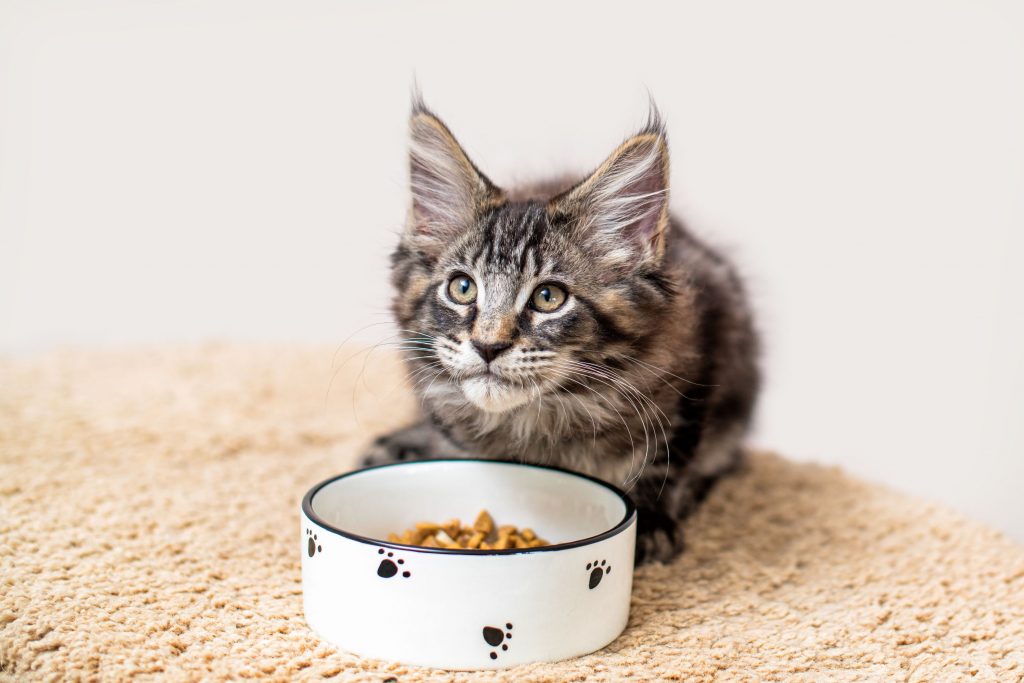Food Aggression in Cats

If you’re a proud cat parent—particularly in a multi-cat household—you might occasionally witness a feeding frenzy that includes snarling, shoving, and swatting. Why? Because some cats get quite possessive of their kibble. A rare instance of this behavior is probably nothing to worry about, but if your cat’s mealtimes are routinely punctuated by hissing, growling, or full-on attacks on other pets and people, you could be dealing with food aggression, and it’s time to put the kibosh on it.
What Causes Food Aggression in Cats?
Let’s take a look at possible causes of food aggression in cats and see if any of these scenarios sound familiar.
Wild Beginnings
Did you take in a feral feline or adopt one from a not-so-posh shelter? Stray animals and shelter cats have steely survival instincts that don’t just magically disappear when they land in a fur-ever home. Cats who come from the wild have often gone hungry for days, and they will remain protective of any food source long after their needs are being met.
A Multi-Cat Home
Communal eating is human nature—not feline nature. Our cat companions are instinctively solitary hunters and eaters. When cats in a multi-cat household feel a need to compete for food, aggression can rear its ugly head.
Premature Weaning
Kittens that have been taken away from their mothers too soon may experience malnutrition and develop a built-in fear of food scarcity.
Anxiety
Cats like things a certain way, right? Food aggression can be a stress response in cats feeling anxious due to changes in their environment, the addition of a new pet, or disruptions to their daily routines.
Undiagnosed Medical Conditions
Hyperthyroidism, which is more common in senior pets, cranks up a cat’s metabolism and can cause the cat to feel famished all the time. Dental disease can also cause cats to become aggressive while eating because they’re in pain.
Curbing Food Aggression in Cats
The first thing to do if you think your cat is exhibiting food aggression is to contact us for an exam so we can rule out medical conditions. Once that’s done, some adaptive measures at home usually do the trick. The key is to mimic a cat’s instinctive eating behavior in a natural setting.
Try these tips from our team:
- Serve your cat multiple, small meals a day; try free feeding your cat; or use an automatic feeder that dispenses food at preprogrammed times.
- Use food puzzles or hide treats throughout the house to satisfy their hunting instincts.
- Provide separate food and water “stations” for each cat in quiet areas of the house (not near litter boxes).
- Keep boredom at bay by playing with your cat. An active kitty in an enriching environment is less likely to display stress-related behaviors like food aggression.
Our cat-loving team at Dupont Veterinary Clinic is here to help you curb your cat’s food aggression. Contact us if you have questions or to schedule a visit.
